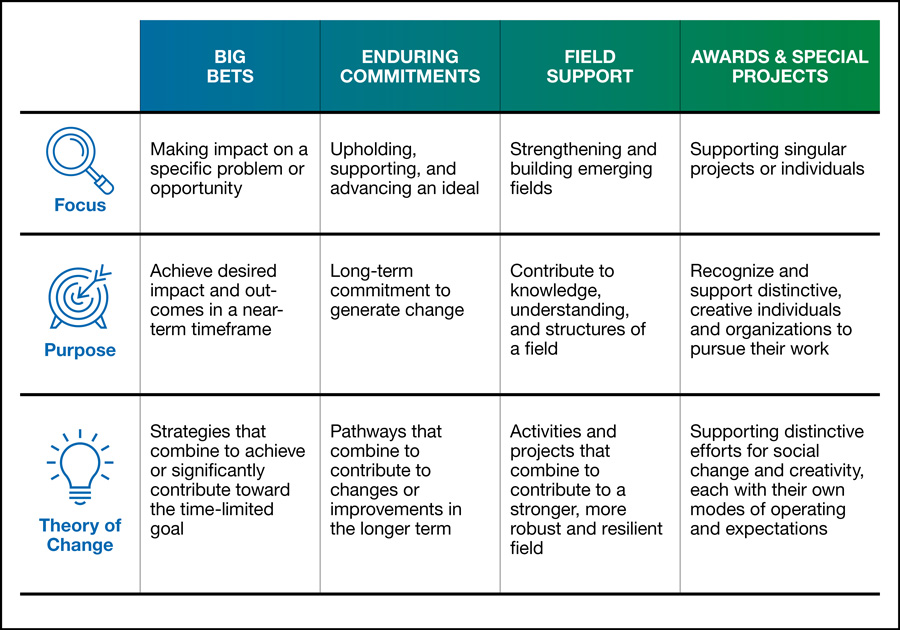Chantell Johnson, Managing Director of Evaluation, discusses frameworks for defining focus, goals, and strategies for our grantmaking.

For several years, MacArthur operated with an elusive definition of strategy and success whereby program officers toiled to articulate and convey their programs: What is the work? How is change supposed to occur? What constitutes success? Tomes were written to describe our programmatic efforts. We invested in strategic, effective, and impactful grantees, but we spent too much time and energy internally that could have been directed toward learning and improvement.
From there, we moved into a period where we operated with a top down approach to strategy. While having a definition of strategy was useful in focusing our programmatic planning, we veered too far into a one-size-fits-all view of our programs.
Eventually we moved into our current state: defining our programmatic work to include four categories: Big Bets, Enduring Commitments, Field Support, and Awards & Special Projects. These categories, and our purpose and theory of change within them, have helped us articulate what this work looks like and align the work with our expectations for what we hope to achieve—its goal. The goals and theory of change for each program dictate how we evaluate it.
Each category has a different strategic approach with a different focus and purpose: Big Bets have a goal of impact with a time-limited, achievable solution to a problem. Enduring Commitments support an ideal or value, with a goal of long-term investment and progress. Field Support aims to create knowledge and structures to build a sector. Awards recognize distinctive individual and institutional creativity.

With this clarity, we understand where we might expect comparisons and where we might expect differences in strategic approaches, goals, and how we evaluate and learn with our program teams in each of these four areas of work. The purpose and focus of the categories help us determine the strategy, confirm the theory of change, and shape our approach to evaluation for learning.
This framework has proven to be helpful to program staff and grantees. It helps articulate what we expect to achieve and ensures we align our evaluation efforts depending on the work—focused on outcomes and impact for Big Bets, ideals and outcomes for Enduring Commitments, field building and field contributions for Field Support, and distinct program results for Awards & Special Projects.
With each evolution of our understanding of strategy, we create a more direct line of sight to our intended results from our resources. And we are more focused. While we continue to further refine our strategy framework going forward, we are confident in our ability to continue to learn, adapt, and improve as we go.
More Perspectives on Evaluation ›



